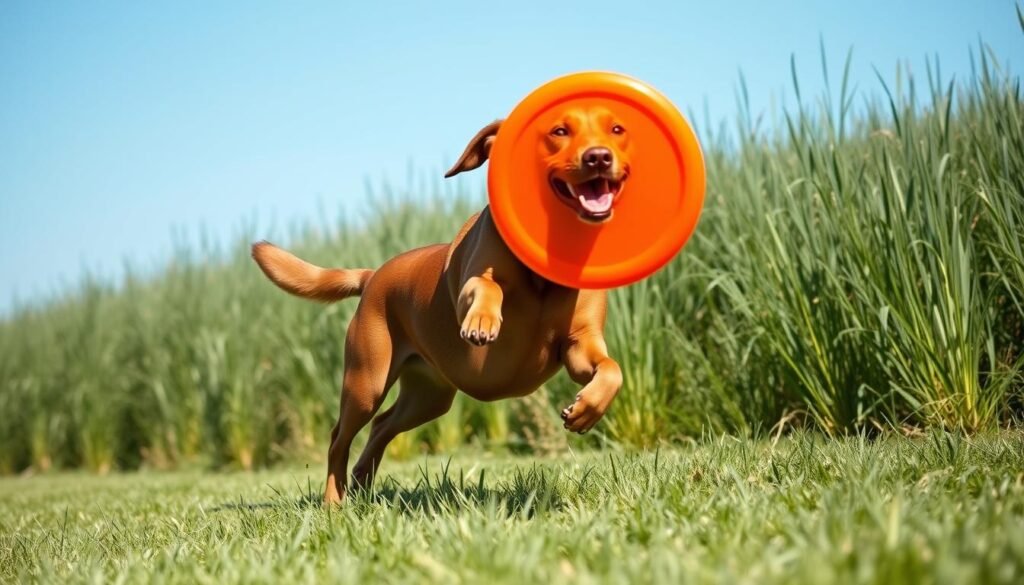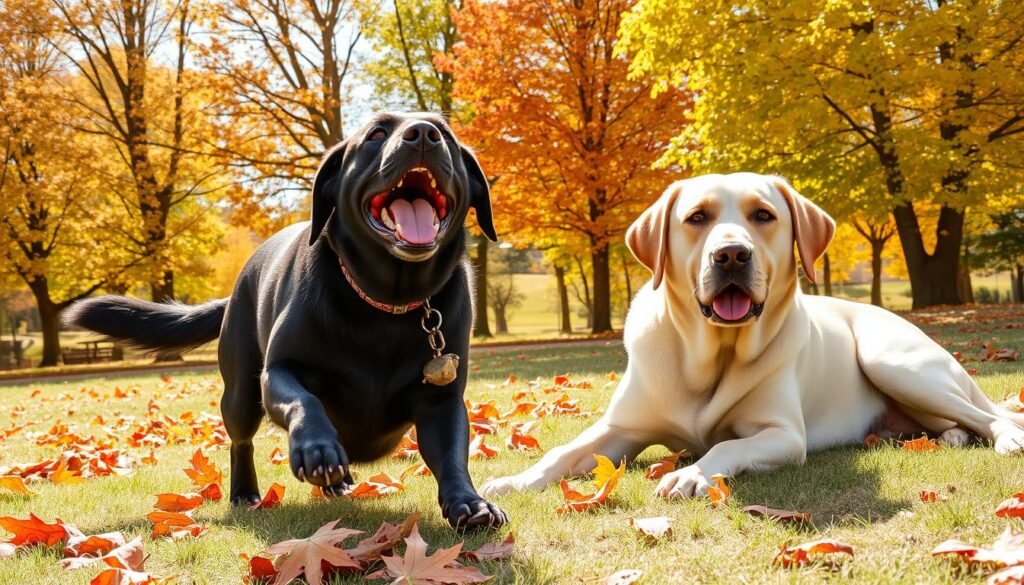The best and worst behaviors in Labrador Retrievers
Labrador Retrievers are famous for being friendly, smart, and loyal. They are one of the top dog breeds in the United States. But, even these beloved dogs can show behaviors that are hard for owners to handle. This guide will look at the best and worst behaviors in Labrador Retrievers. It will give you tips and strategies to enjoy the good times and deal with the tough ones of owning a Lab.
Key Takeaways
- Labradors are known for their superb temperament, but even the nicest dog can have behavioral issues.
- Common behavior problems in Labs include chewing, digging, biting, fearfulness, anxiety, and separation anxiety.
- Effective training and socialization techniques can help resolve many Labrador behavior challenges.
- Understanding your Labrador’s unique personality and energy needs is crucial for a harmonious relationship.
- Seeking advice from a veterinarian or animal behaviorist can provide valuable guidance for addressing specific behavior concerns.
Understanding Labrador Dog Behavior: Key Traits and Characteristics
Labrador Retrievers are loved for their friendly demeanor and engaging personalities. They are sociable animals who love being around people. They also get along well with other pets, making them great family dogs. It’s important to encourage positive interactions to bring out their natural friendliness.
Labradors are among the most intelligent dog breeds. This can lead to both good and bad behaviors. Their intelligence makes them quick learners, but they can get bored without enough stimulation. Regular training sessions and activities that challenge their minds are key to keeping them happy and well-behaved.
Energy Levels and Exercise Requirements
Labradors are full of exuberance and high energy. Without enough exercise and mental challenges, they might bark too much, dig, or chew. Owners should aim for at least an hour of physical activity each day. This can include brisk walks, fetch, or swimming, to help manage their hyperactivity and keep them happy.
Loyalty and Potential for Separation Anxiety
Labradors are known for their loyalty and deep bonds with their families. This loyalty can sometimes show as clinginess. Some Labradors may also struggle with separation anxiety when left alone. Creating a comfortable, secure space and gradually increasing time away can help them adjust to being alone.
Playfulness and Love for Games
Labradors keep a puppy-like demeanor even as adults. They love playful activities and approach life with joy and enthusiasm. Playing games regularly not only keeps them physically active but also boosts their emotional well-being.
Retrieving Instinct and Its Implications
Labradors have a strong instinct for retrieving, bred for hunting and retrieving game. Owners can use this instinct by playing games that involve fetching. This can be very rewarding for both the dog and the owner.
Importance of Early Socialization and Training
Understanding the importance of training and socialization early on is crucial. Early socialization helps prevent aggression and ensures they grow into calm, well-adjusted adults. Consistent training using positive reinforcement helps establish good behavior patterns, making them well-mannered companions.

“Labradors are known to maintain a puppy-like demeanor well into adulthood, adoring playful activities and characterized by a joyful, enthusiastic approach to life.”
The best and worst behaviors in Labrador Retrievers
Labrador Retrievers are loved for their friendly and loving nature. They make great family pets. But, they can also have behavioral problems that affect their life and their bond with owners. It’s key to know and fix issues like too much barking and chewing.
One great thing about Labradors is their social disposition. They are very friendly, even to strangers. They also get along well with kids and other dogs. Plus, their love for water and retrieving makes them great for outdoor fun.
But, Labradors can have bad behaviors too. Puppies often chew, dig, and bite. They explore with their mouths a lot. They can also get anxious and destructive when left alone.
- Excessive barking and whining
- Jumping up on people
- Stealing and raiding trash cans
- Difficulty with recall when tempted by other dogs or people
- Counter surfing and food guarding
To fix these issues, you need training, socialization, and management strategies. Give your Labrador lots of exercise, mental games, and positive feedback. This helps them behave better and strengthens your bond.
“Labradors are known for their friendly disposition, but even this beloved breed can exhibit behavioral issues that require attention and management.”

Socialization Techniques for Labrador Retrievers
Effective socialization is key for a happy Labrador Retriever. Their friendly nature makes them thrive on social experiences. These help them become confident and well-mannered friends.
Start socializing a Labrador puppy early, from 8 weeks to 16 weeks. Waiting too long can make it harder for them to adapt. Puppy socialization classes are great for controlled interactions and learning.
Labrador Retrievers need to explore different places like cities, parks, and beaches. But, introduce them slowly to avoid stress. Use positive methods like treats and praise to encourage good behavior.

